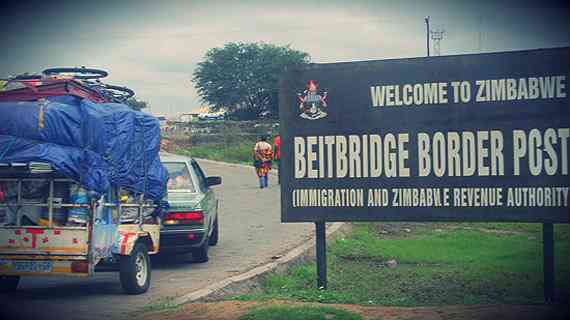
"It is clear that we must find an African solution to our problems, and that this can only be found in African unity. Divided we are weak; united Africa could become one of the greatest forces for good in the world,” Kwame Nkrumah.
The African Continental Free Trade Area (AfCFTA) is finally here and could be the solution to African problems as prophesied by the father of Africa, Kwame Nkrumah.
After several delays, trading under the African Continental Free Trade Area finally commenced on the 1st of January 2021.
The long-awaited trading has been a historic event for not only African unity but for intra-Africa trade. On the 24th of May 2019, Zimbabwe joined other African countries in signing the long-awaited AfCFTA agreement.
In simplified terms, AfCFTA is the world’s largest free trade area bringing together the 55 countries of the African Union (AU) and eight regional economic communities to create a single market for the continent.
It is basically a trade agreement wherein African countries have agreed to eliminate tariffs on most goods in order to allow free access to commodities, goods and services across the African continent.
Ultimately, the objective of the agreement is the free movement of goods, labour, services and capital thus paving the way for a continental single market and creating one African market.
The agreement establishing the AfCFTA is a game-changer for African economies at large and has come at a crucial time, marked by increased poverty levels and socioeconomic setbacks following the COVID-19 pandemic and other natural disasters.
- Delays in ratifying AU human rights charter disconcerting
- Cartoon: September 27, 2022 edition.
- Unpacking assignment clauses – A broad overview
- Feature: Zim needs to shift its trade matrix
Keep Reading
It has been estimated that the implementation of the agreement could increase intra-African trade by up to 52% in the next five years. AfCFTA is expected to expand the size of Africa’s economy to US$29 trillion by 2050.
Zimbabwe’s ratification of the AfCFTA is in accordance with the African Union’s Pan-African Vision of: “An integrated, prosperous and peaceful Africa”, as enshrined in Agenda 2063.
In Africa, small and medium-sized enterprises (SMEs) represent about 80% of Africa’s businesses and are responsible for more than 80% of Africa’s employment and 50% of its gross domestic product (GDP). In Zimbabwe specifically, our economy is mostly informal wherein it is asserted that SMEs comprise approximately 94% of businesses and yet only contribute less than 50% of the country's GDP.
Notwithstanding this most SMEs in Zimbabwe struggle to grow and expand because of multiple barriers that limit their capacity to compete on the international market and trade with neighbouring African countries.
The AfCFTA thus provides an opportunity for businesses in Zimbabwe to grow and expand into other African markets.
This is because AfCFTA facilitates imports and exports among member countries with lower or no tariffs, free access to the market and market information, and the elimination of trade barriers.
One of the biggest opportunities offered by AfCFTA to businesses in Zimbabwe is market access.
Under the free trade area, businesses will be exposed to a more expanded market which is estimated to be as large as 1,3 billion people across Africa, with a combined GDP of $3,4 trillion. Further, trading under the AfCFTA provides for open borders, improved contracts, and better-structured value chains which are key benefits for SMEs to grow.
One of the main objectives of AfCFTA is to increase Africa’s intra-continental trade by 52,3% by 2022.
SMEs will thus benefit from this as they will be able to increase their sales and boost their businesses because of their capacity to reach consumers from all over the continent.
Businesses will benefit from partnerships with potential foreign investors who want to invest or launch their businesses in Africa through foreign direct investment.
Increased intra-African trade will increase economies of scale and provide access to cheaper raw materials and intermediate inputs.
The free trade also offers better conditions for regional value chains and integration into global value chains, catalysing the transformation of SMEs towards greater utilisation of technology and knowledge, facilitating both intra-African and external direct capital flows.
This in turn creates a labour market and a demand pull throughout the continent. Further, AfCFTA will facilitate export diversification which gives SMEs an opportunity to expand their markets.
Furthermore, the reduction of tariff revenues collected by African countries on intra-African trade will make it easier for more SMEs to join the “real” economy by ensuring a fairer distribution of the gains from free trade.
AfCFTA will provide greater support for trade facilitation and exchange of information from the pan-African, regional and local bureaucracies which will be a great incentive for SMEs participation.
AfCFTA may be the answer to most of Africa’s problems as it creates a platform for economic growth as well as social transformation through the liberalisation of trade.
Businesses in the private sector have a lot to benefit from AfCFTA but should make sure that they are knowledgeable of the opportunities that it provides to ensure that they fully enjoy the benefits of the same.
Businesses must also take measures to ensure they increase their competitiveness on the market and look for opportunities for partnerships regionally.
Businesses must therefore, strategically position themselves regardless of their industry to exploit larger market opportunities offered by AfCFTA and tap into new and more exciting markets.
Chido Mafongoya is a legal practitioner practising in Harare. She is an expert in international trade, investment and business law. She is also the co-founder of The Directors’ Handbook in Zimbabwe.










